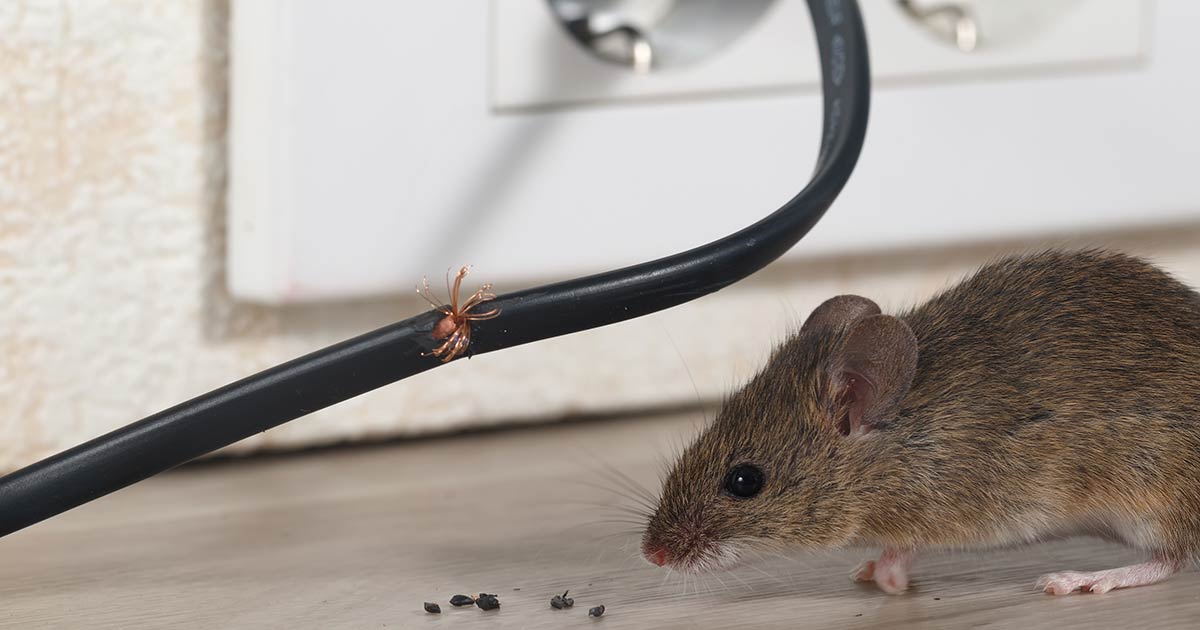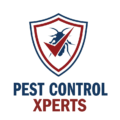Rat Control and Rodent Exclusion in Palm Bay, Florida, Pest Control Xperts
In Palm Bay and Grant the scratching sound of rats in the attic is a homeowner’s worst nightmare. At Pest Control Xperts we provide specialized rat control and rodent exclusion services designed to handle the aggressive rodent populations of the Space Coast. Unlike smaller pests rats are strong, intelligent, and capable of causing severe structural damage in a very short time. Whether you are hearing heavy thumping in your ceiling at night or have found chewed wires in your garage our team has the construction knowledge and pest control expertise to resolve the issue safely.
Our area is famous for its “Fruit Rats” or Roof Rats which thrive in our palm trees and citrus groves before moving into our homes to nest. These pests are excellent climbers and exploit the smallest construction gaps to enter your sanctuary. We do not just toss a few traps in the attic and hope for the best. We focus on a complete solution that includes rigorous pest inspection, strategic trapping to remove the current population, and permanent exclusion techniques for pests to seal your home against future invasions. We prioritize clear communication and dependable scheduling to restore your peace of mind.
Rat Problems We Solve in Palm Bay
Rats in Grant and Malabar are not just a nuisance they are a serious health and safety threat. They constantly gnaw to keep their teeth sharp often targeting PVC piping and electrical wiring which creates fire hazards and water leaks. They also contaminate insulation with urine and feces creating a biohazard in your attic. Effective rodent removal requires a strategy that outsmarts these cautious animals. We provide the professional pest control services needed to protect your property value and your family’s health.
Common signs of a rat issue:
- Heavy scratching or running sounds in the attic or walls (mostly at night)
- Large dark droppings (banana shaped) in the attic, garage, or pool heater
- Grease marks (rub marks) on soffits, pipes, or along beams
- Chewed holes in soffit screens, drywall, or door sweeps
- Hollowed out oranges or grapefruits found in the yard
- Nests made of shredded insulation or palm fibers
- Pet dogs barking at the ceiling or acting aggressive in the backyard
- Ammonia like odors coming from vents or hidden areas

Types of Rat Issues We Handle
Roof Rat (Fruit Rat) removal
The Roof Rat is the number one structural pest in Florida. They spend 90% of their lives off the ground moving from trees to power lines to your roof. They enter through roof returns, ridge vents, and soffit intersections. Once inside they nest in the insulation and reproduce rapidly. Because they are neophobic (afraid of new things) they are difficult to trap without professional experience. We focus on intercepting them on their runways and removing them quickly.
What we look for during inspection:
- Tree limbs touching the roof
- Gaps where the soffit meets the roof line
- Damaged attic vents
- Runways compressed into the attic insulation
How we approach treatment
We use high impact snap traps placed safely in the attic or crawlspace. We avoid using rodenticides inside the structure to prevent rats from dying in inaccessible walls and causing odor issues. Our goal is physical removal and recovery.
Norway Rat control and burrow treatment
While less common in Palm Bay than Roof Rats Norway Rats are larger and prefer to burrow at ground level. They are often found under concrete slabs, pool decks, or in debris piles in the yard. They can compromise the foundation of a home by digging extensive tunnel systems. Control requires a different approach that targets their exterior burrows.
What we look for during inspection:
- Holes dug under the foundation or AC pad
- Gnaw marks on the bottom of garage doors
- Burrows near compost piles or trash cans
How we approach treatment
We use tamper resistant exterior bait stations anchored to the ground. We also treat active burrows directly. We advise on landscape changes to remove the cover they need to hide.
Rodent exclusion and home sealing
Trapping removes the rats you have but exclusion stops new ones from replacing them. This is the most critical part of long term pest control. We “harden” your home against pests by sealing every potential entry point. In our area construction gaps are common and rats find them all. We use materials that rats cannot chew through ensuring a permanent barrier.
What we look for during inspection:
- AC chases (line sets) entering the wall
- Roof returns (rat highways)
- Gaps around dryer vents and plumbing stacks
- Loose fascia boards
How we approach treatment
We perform rodent barrier installation using galvanized steel mesh, concrete, and metal flashing. We do not use expanding foam alone as rats can chew right through it. We mechanically secure these sealants to the structure to ensure they hold up against weather and wildlife.

Our Rat Inspection and Exclusion Approach
A successful rat job starts with a forensic inspection. We start on the roof walking the entire perimeter to check for entry points. We inspect the attic looking for “latrines” and runways. We check the crawlspace and the exterior foundation. We identify not just where they are getting in but why they are attracted to your home in the first place.
Once we have mapped the infestation we execute a trap and seal strategy. We set traps to knock down the population immediately. Simultaneously we begin the exclusion techniques for pests. This locks the home down. We use integrated pest management to ensure we are solving the root cause. We also offer pest assessment services for sanitation. If the insulation is heavily soiled we can discuss restoration options. We provide periodic pest inspections after the initial service to ensure the exclusion work remains intact and no new activity has occurred.

Rat Prevention and Property Management Tips
Rats are opportunistic. In Grant and Valkaria the rural environment provides them with plenty of food but your home provides the best shelter. Reducing the attractants on your property is the best way to support our exclusion work. Simple changes to your landscaping and storage habits can make your home invisible to scouting rats.
Preventative steps that actually help:
- Install metal bands (rat guards) on the trunks of fruit trees and palm trees
- Keep palm trees trimmed to eliminate the “thatch” where rats nest
- Remove ivy or vines growing on the exterior walls of the home
- Elevate lumber and firewood at least 18 inches off the ground
- Harvest citrus and avocados as soon as they ripen
- Ensure garbage cans have tight fitting lids and are washed regularly
- Do not leave pet food outside overnight
- Keep bird feeders away from the house or remove them if activity is high
By implementing these pest deterrent strategies you reduce the pressure on your home’s defenses. Combined with our professional pest proofing services you create a secure perimeter.
Residential and Commercial Rat Control
We serve the entire South Brevard community. Our residential pest control is designed to be tough on rats but safe for your family. We use traps and materials that are kept away from children and pets. We respect your home and clean up after ourselves.
For businesses rat activity is a liability. We provide commercial pest services for warehouses, restaurants, and office parks. We understand the unique challenges of commercial structures including loading docks and drop ceilings. We provide documentation for health inspectors and work discreetly to resolve issues without alarming customers. Our commercial pest eradication programs focus on exterior reduction to stop rats before they reach the building.
Professional Rat Extermination vs DIY Methods
Many homeowners try to handle rats with store bought traps or poison blocks. This often leads to frustration and unintended consequences. Placing poison inside an attic is a major risk; if the rat dies inside a wall void the resulting odor can make a room uninhabitable for weeks. Furthermore rats are neophobic and will avoid traps that are not placed or baited correctly. A DIYer might catch the “dumb” rats but leave the breeding pair to continue the infestation.
Professional rat extermination is about construction and behavior. We know how to identify the “rub marks” that indicate a high traffic runway. We have the tools to install steel flashing on a roof line safely. We use traps that kill instantly and humanely allowing us to remove the carcass. We also have access to exclusion materials that are not available at big box stores. By choosing professional pest control you are choosing a comprehensive solution that addresses the entry points ensuring the problem is solved for good.
Frequently Asked Questions About Rat Control
Do you provide rat control in Palm Bay and nearby areas?
Yes we serve Palm Bay, Grant, Malabar, Valkaria, Micco, and the surrounding areas. We are experts in the local “Fruit Rat” populations that plague our coastal communities.
What is the difference between a mouse and a rat infestation?
Rats are much larger and cause more damage. Their droppings are ¾ inch long compared to the rice sized droppings of mice. Rats are also more cautious making them harder to trap. We adjust our strategy based on the species.
How do you keep rats out of the attic?
The only way is exclusion. We seal every gap larger than a quarter inch using steel mesh and concrete. We focus on roof returns, soffit vents, and AC line penetrations which are the most common entry points.
Do you use poison in the attic?
We generally avoid using rodenticides inside the attic to prevent rats from dying in walls. We prefer mechanical trapping which allows us to confirm the catch and remove the animal preventing odor and fly issues.
How much damage can a rat do?
Rats can chew through lead pipes, concrete, and electrical wires. In fact a significant percentage of “undetermined” house fires are attributed to rodent damage. They also compress and contaminate insulation reducing its efficiency.
Why are rats eating my pool heater wires?
Rats are attracted to the warmth and the soy based insulation used on modern wires. We can help install rodent barrier installation around pool equipment to protect expensive components.
Is there a reliable local rat removal service near me?
If you are in South Brevard we are your local team. We offer fast response times and durable repairs that stand up to our Florida weather.
Do you offer green pest control options for rats?
Our exclusion and trapping method is chemically free and environmentally friendly. It relies on physical barriers and mechanical removal making it the “greenest” way to handle a rodent issue.
Service Area for Rat Control in and Around Palm Bay, Florida
We are proud to protect the homes of the Space Coast. Whether you live in a historic home in Grant or a new build in West Melbourne we have the experience to handle your rat issues. We understand the specific construction styles of our area and how rats exploit them.
- Palm Bay
- Grant
- Malabar
- Valkaria
- Micco
- Barefoot Bay
- West Melbourne
- Lockmar
Zip codes we serve: 32905, 32907, 32908, 32909, 32949, 32950, 32976
Conclusion
Rats are smart but we are smarter. At Pest Control Xperts we provide the aggressive strategy and durable repairs needed to defeat a rat infestation. Do not wait for them to cause fire damage or contaminate your home. Trust our team to inspect, trap, and seal your property effectively.
Contact us today
